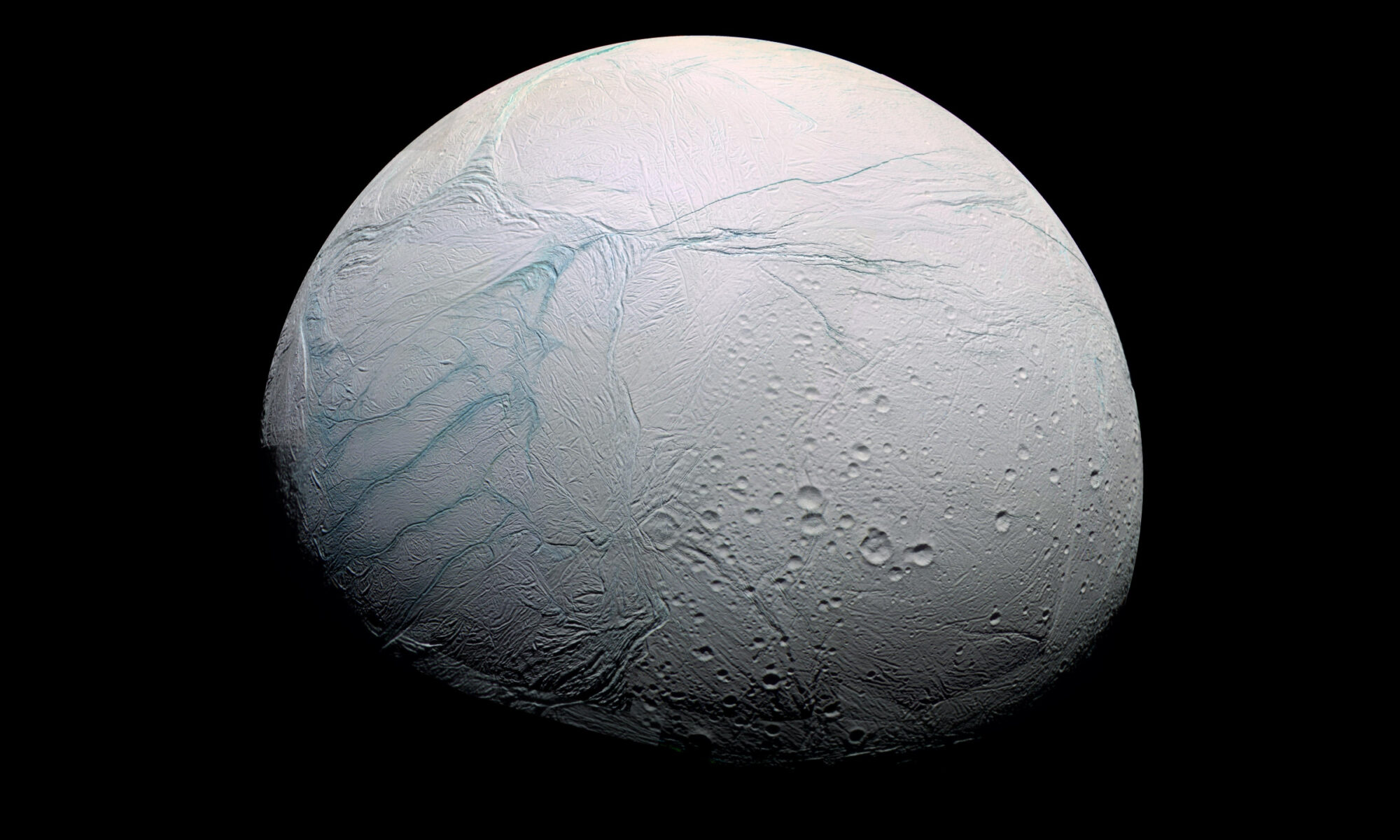James New
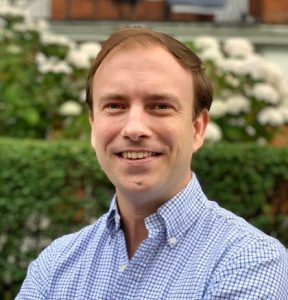
Dr. James New earned his Ph. D. in Physics from the University of Kent in 2018 where he worked on the design, construction and hypervelocity impact testing of a prototype orbital debris and interplanetary dust detector. During this time he assisted the development of the NASA Space Debris Sensor (SDS) flown aboard the International Space Station to characterize the sub-centimeter orbital debris environment in low Earth orbit. Prior to this, James completed his M.Sc. where he used numerical simulations of hypervelocity impacts to optimize spacecraft Whipple shielding.
Currently, James is conducting his research as a Postdoctorate Research Associate at the Berkeley Space Science Laboratory. James is carrying out hypervelocity impact experiments and hydro-code modeling to develop a new state-of-the-art plume capture subsystem for the NASA Enceladus Organic Analyzer (EOA).
Bahar kazemi
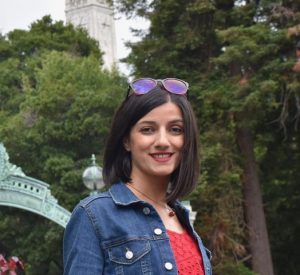
Bahar Kazemi is a visiting research fellow in Mathies group in the Department of Chemistry at the University of California in Berkeley.
Bahar completed her Bachelor of Science in mechanical engineering at Isfahan University of Technology, Iran in 2014, and earned her Master of Science in mechanical engineering from Southern Illinois University Edwardsville in 2017. Her Master’s research project focused on numerical simulation of a dielectrophoretic microfluidic chip with slanted microelectrodes for detection and separation of circulating tumor cells.
Her current research focuses on a novel gel electrophoresis method for detection and isolation of several types of bacteria, as well as design and fabrication of a hydrogel array analysis cartridge for rapid and on-site characterization of various samples. She is also working in support of the NASA EOA project by performing quantitative analysis of ice particle shots performed at the University of Kent.
Laura Casto
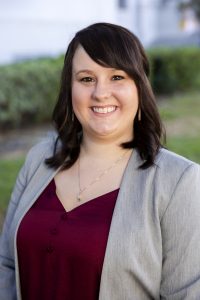
Dr. Laura Casto is currently working with Prof. Richard Mathies and Dr. Anna Butterworth as a Postdoctoral Scholar at the Space Sciences Lab and Chemistry Department at UC Berkeley.
Laura earned her Bachelor of Science in Chemistry and Mathematics from West Virginia Wesleyan College in 2013. During her undergraduate career, she completed two consecutive Summer Undergraduate Research Experiences at West Virginia University with Dr. Lisa Holland working on aptamer-based assays and characterizing a thermally responsive smart gel as a separation medium for microchip electrophoresis.
In August 2015, she joined the research group of Dr. Christopher Baker in the Chemistry Department at the University of Tennessee where she completed her PhD in 2019. In the Baker group, her research was motivated by the development of neuropeptide assays with high temporal and spatial resolution using capillary and microchip electrophoresis. This work has resulted in peer-reviewed publications, numerous presentations at national, regional, and local conferences, several poster awards including the Margaret “Tina” Riedinger Societal Impact Award at the 2nd Annual Women in STEM Research Symposium at UTK and Best Poster at the 2018 Department of Chemistry Board of Visitors Meeting. She was also the recipient of the Eastman Fellowship in Analytical Chemistry for the Summer of 2018. Throughout her time in the UTK Chemistry Department, she was consistently involved with the Association of Chemistry Graduate Students, serving as the President, Vice President, and Career Development Chair, as well as serving on the department recruitment and seminar committees as the graduate student representative.
Her work at Berkeley is focused on the optimization of organic amine and amino acid analysis on microfabricated capillary electrophoresis wafers for the MOAB project that is being developed as a potential instrument for in situ bioorganic marker detection on a landed Europa mission.
Nicole Parsley
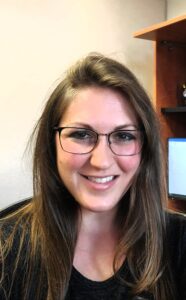
Dr. Nicole Parsley works with Prof. Richard Mathies and Dr. Anna Butterworth as a Postdoctoral Scholar at the Space Sciences Lab and Chemistry Department at UC Berkeley.
Nicole earned her Bachelor’s in Chemistry with a concentration in Biochemistry and Ecology & Evolutionary Biology from the University of California, Santa Cruz in 2015. As an undergraduate with Dr. Carrie Partch (UCSC), Nicole used solution-state multi-dimensional nuclear magnetic resonance (2D/3D-NMR) to probe the molecular mechanisms of mammalian circadian rhythms – light-synchronized molecular clocks that orchestrate daily physiological processes to the 24-hr solar cycle. Her undergraduate thesis centered on biophysical protein characterization of a slow conformational “switch” in the intrinsically disordered C-terminal transactivation domain of BMAL1, including protein backbone cis/trans isomerization rate determination (ZZ-exchange) and titration studies to determine protein binding sites.
In 2020, Nicole received her Ph.D. in Chemistry with a certificate in Biophysics with Dr. Leslie Hicks at the University of North Carolina at Chapel Hill. Her dissertation at UNC focused on the use of nano-liquid chromatography multistage mass spectrometry (nLC-MS/MS) for the detection and characterization of bioactive peptides in complex natural product matrices. Nicole was particularly interested in novel strategies to characterize difficult-to-sequence cyclic and highly disulfide-bound botanical peptides. At UNC, Nicole was awarded an NIH T32 Molecular and Cellular Biophysics Training Grant and the UNC Graduate School Dissertation Completion Fellowship.
She was active in the Carolina community as the co-chair of UNC Green Labs, a member of the UNC Chemistry Sustainability Committee, and a regular volunteer for the Carolina Campus Community Garden, NC Botanical Garden, UNC-CH Science Expo, and NC Science and Engineering Fair. Briefly after graduate school, Nicole worked as a Postdoctoral Scholar with Dr. Manuel Kleiner at North Carolina State University, focusing on 2D-LC-MS/MS method development for the detection and characterization of low abundance signaling peptides in agriculturally-relevant plants.
At Berkeley, Nicole is currently working on the development and testing of the MOAB sample cup and fluidic processing using analog Europa salt-ice samples.
